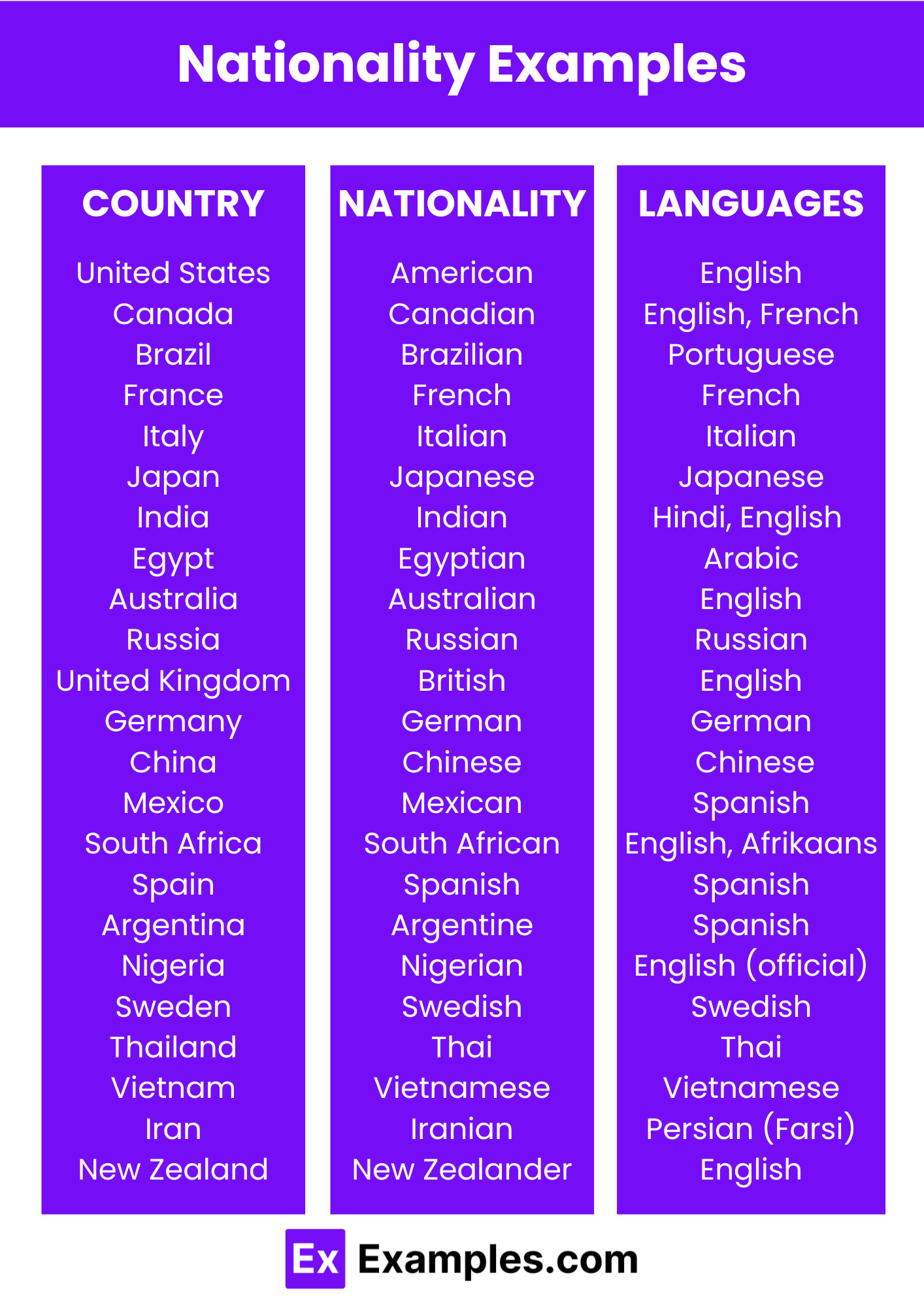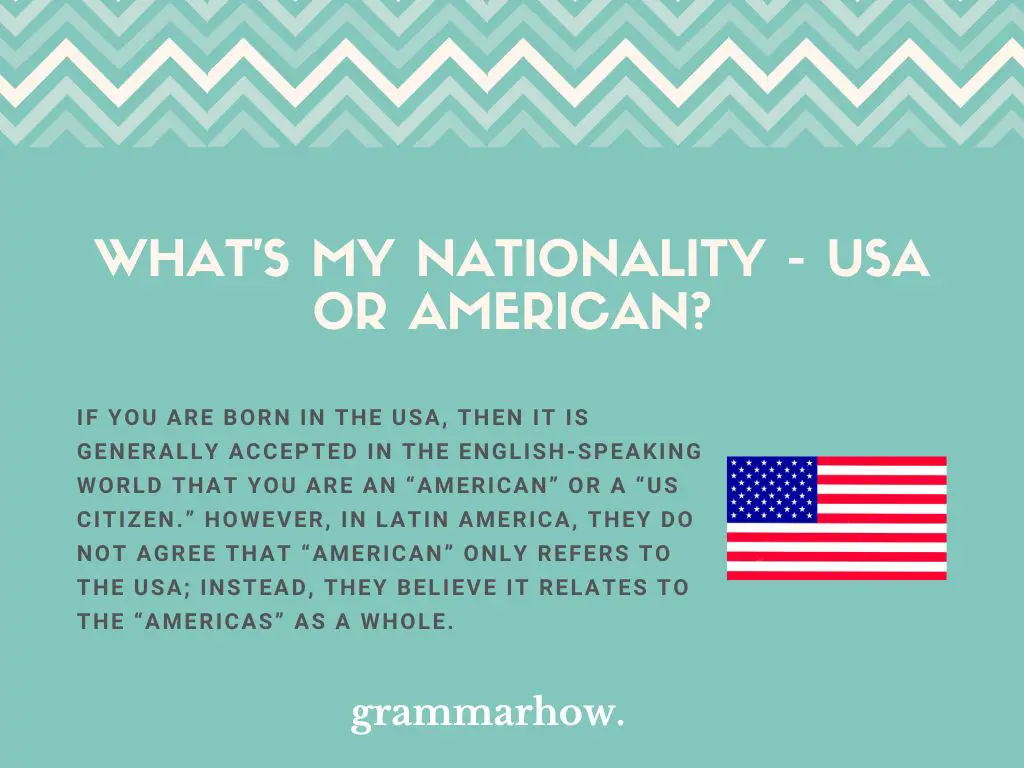Exploring the question "What nationality was" can be a fascinating journey into history, culture, and identity. This topic delves into the origins of individuals or groups, uncovering their national, ethnic, and cultural backgrounds. Whether you're researching a historical figure, a family lineage, or a famous personality, understanding nationality is key to comprehending their story and context.
Throughout history, nationality has been a defining factor in shaping the lives of people and nations. It influences identity, culture, and even global relationships. In this article, we will explore the concept of nationality and provide insights into how it has evolved over time. We'll also examine various examples and contexts where the question "What nationality was" becomes relevant.
Whether you're a history enthusiast, a genealogist, or simply curious about the origins of notable figures, this article will provide valuable information. By the end, you'll have a deeper understanding of how nationality affects personal and collective identity. Let's begin this exploration together!
Read also:Aniela Verbin Onlyfans A Comprehensive Guide To Her Journey Content And Influence
Table of Contents:
- Understanding Nationality
- Historical Context of Nationality
- Nationality of Famous Figures
- Cultural Impact of Nationality
- Legal Aspects of Nationality
- Genealogy Research and Nationality
- Common Misconceptions About Nationality
- Statistics and Trends in Nationality
- Nationality in Modern Times
- Conclusion
Understanding Nationality
Nationality refers to the legal relationship between an individual and a nation-state. It often defines a person's identity, rights, and obligations within a specific country. The concept of nationality has evolved over centuries, influenced by political, social, and cultural factors.
Legal vs. Cultural Nationality
It's important to distinguish between legal and cultural nationality. Legal nationality is determined by citizenship, which is granted through birth, naturalization, or descent. On the other hand, cultural nationality is tied to ethnicity, language, and traditions. Both aspects contribute to a person's sense of belonging and identity.
Historical Context of Nationality
The idea of nationality gained prominence during the 18th and 19th centuries, coinciding with the rise of nation-states in Europe. This period saw the emergence of national identities based on shared language, history, and culture. Wars, treaties, and migrations further shaped the concept of nationality.
Key Historical Events
- Treaty of Westphalia (1648): Established the concept of sovereignty and laid the groundwork for modern nation-states.
- Napoleonic Wars (1803-1815): Sparked nationalist movements across Europe.
- World War I and II: Redefined national boundaries and led to the creation of new countries.
Nationality of Famous Figures
Many historical and contemporary figures are associated with specific nationalities. Understanding their origins can provide insights into their achievements and contributions. Below, we explore the nationalities of some notable individuals.
Biography of a Famous Figure
| Name | Birthplace | Nationality | Occupation |
|---|---|---|---|
| Leonardo da Vinci | Vinci, Italy | Italian | Artist, Inventor |
| Albert Einstein | Ulm, Germany | German, later Swiss and American | Physicist |
| Mahatma Gandhi | Porbandar, India | Indian | Political Leader |
Cultural Impact of Nationality
Nationality plays a crucial role in shaping cultural identity. It influences language, traditions, and social norms. For example, Japanese culture is deeply rooted in its national identity, with practices like tea ceremonies and martial arts reflecting its unique heritage.
Read also:Sharkbae Leak Unveiling The Truth Behind The Viral Sensation
Examples of Cultural Influence
- French cuisine as a symbol of French identity.
- Traditional music in African countries as a reflection of ethnic diversity.
- Latin American festivals celebrating national pride and heritage.
Legal Aspects of Nationality
From a legal perspective, nationality determines citizenship and the rights associated with it. These include the right to vote, work, and reside in a country. International laws and treaties govern the transfer and recognition of nationality.
Key Legal Documents
- Universal Declaration of Human Rights (1948): Recognizes the right to nationality.
- Convention on the Reduction of Statelessness (1961): Aims to prevent statelessness.
Genealogy Research and Nationality
Genealogy is the study of family history and lineage. It often involves tracing nationalities to understand ancestral origins. With advancements in DNA testing, individuals can now uncover their ethnic backgrounds with greater accuracy.
Tools for Genealogy Research
- Ancestry.com: Provides access to historical records and DNA testing.
- 23andMe: Offers insights into genetic ancestry and health.
Common Misconceptions About Nationality
There are several misconceptions surrounding nationality. For instance, some people believe that nationality and ethnicity are interchangeable terms. However, they represent different aspects of identity. Another misconception is that nationality is solely determined by place of birth, ignoring factors like descent and naturalization.
Addressing Misconceptions
- Clarifying the distinction between nationality and citizenship.
- Highlighting the role of cultural identity in nationality.
Statistics and Trends in Nationality
Data and statistics provide valuable insights into nationality trends. According to the United Nations, there are over 195 countries in the world, each with its own unique national identity. Migration patterns also influence nationality, as people move across borders in search of opportunities.
Key Statistics
- Approximately 281 million people live outside their country of origin (UN DESA, 2020).
- The United States is the top destination for migrants, hosting over 51 million foreign-born residents.
Nationality in Modern Times
In today's globalized world, nationality continues to evolve. Dual citizenship, international marriages, and cross-cultural exchanges have redefined traditional notions of identity. Social media platforms also play a role in shaping national identities, connecting people across borders.
Modern Challenges
- Addressing issues of statelessness and refugee status.
- Promoting inclusivity and diversity in national identities.
Conclusion
Exploring the question "What nationality was" offers a deeper understanding of identity, history, and belonging. From historical contexts to modern-day challenges, nationality remains a vital aspect of human existence. By examining the legal, cultural, and social dimensions of nationality, we gain valuable insights into the complexities of identity.
We invite you to share your thoughts and experiences in the comments below. If you enjoyed this article, consider sharing it with others or exploring related topics on our website. Together, let's continue the conversation about nationality and its impact on our world.
References:
- United Nations Department of Economic and Social Affairs (UN DESA).
- International Organization for Migration (IOM).
- Convention on the Reduction of Statelessness (1961).


